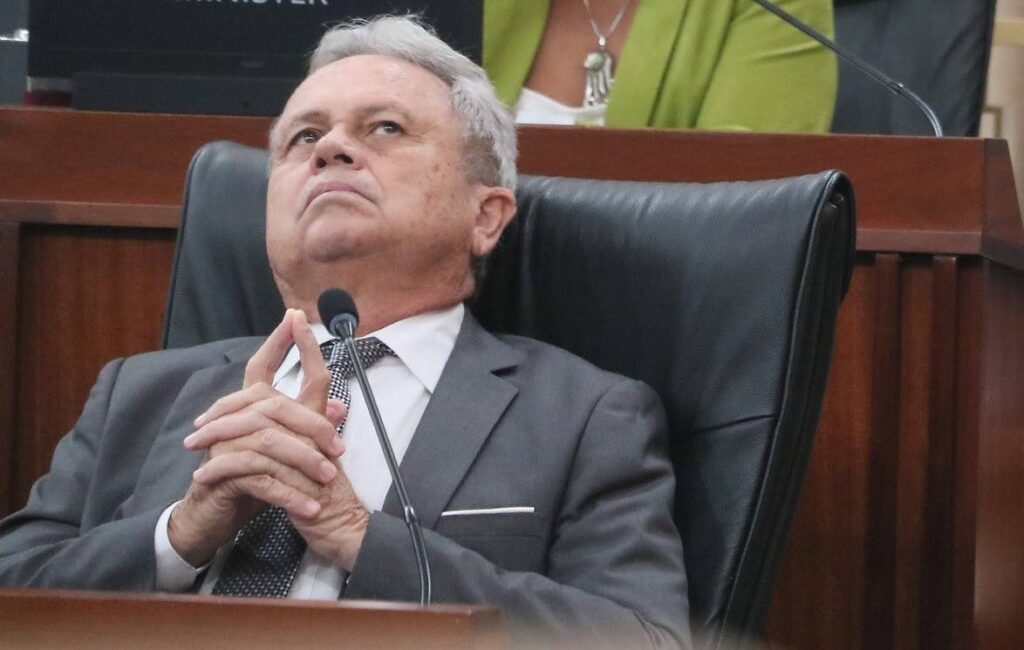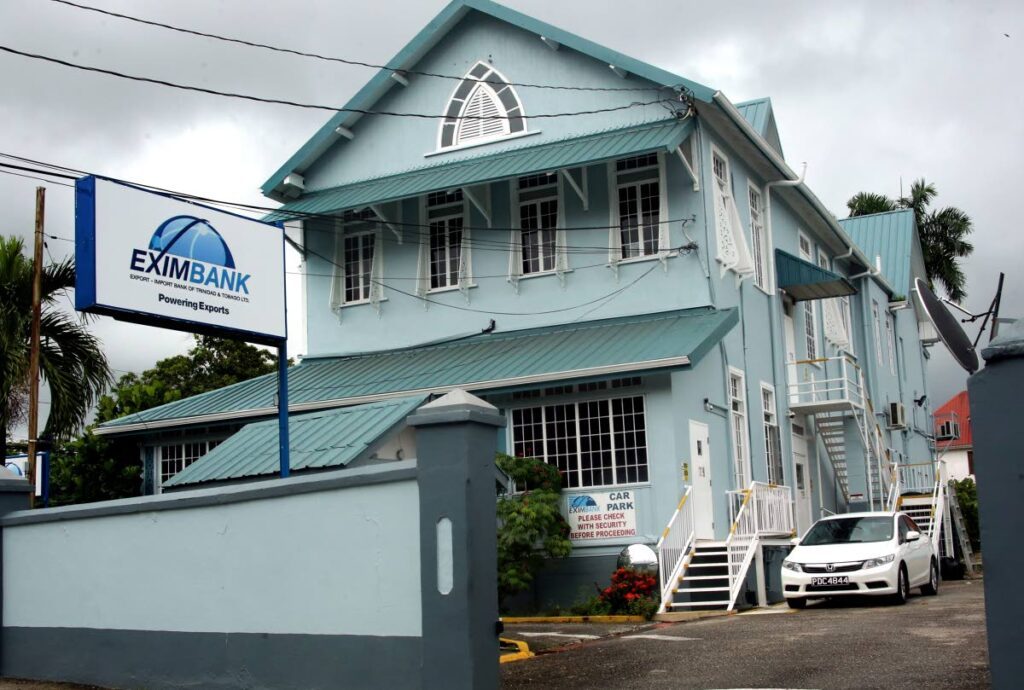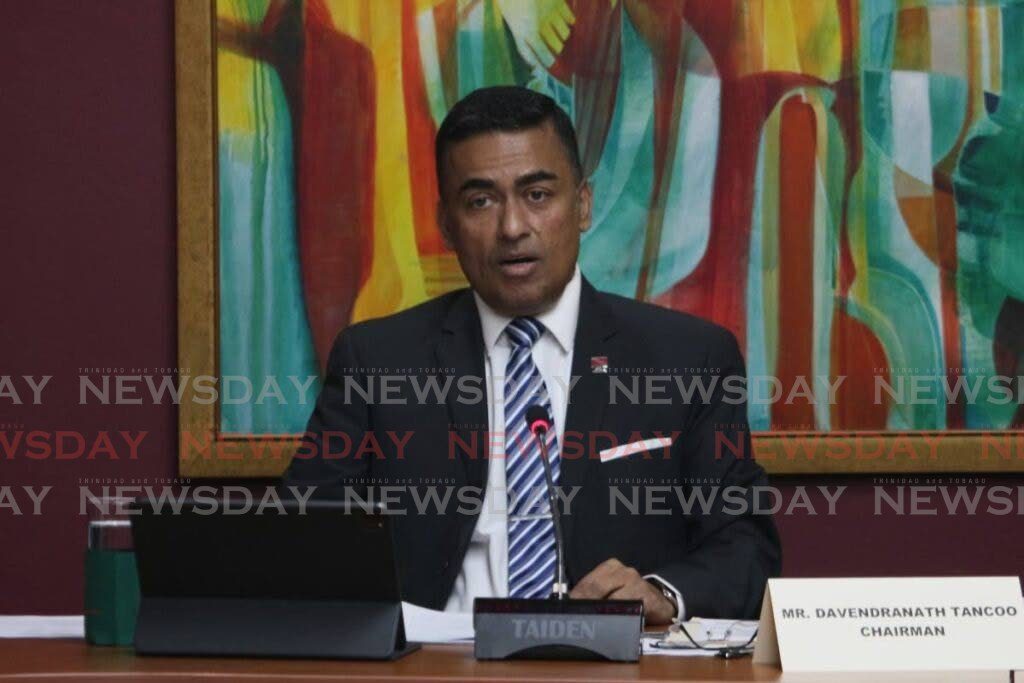Ministry, TTMA, chambers in discussions — Should forex 'honours' system be changed?

Finance Minister Colm Imbert says the ministry is engaging various chambers of commerce and the TT Manufacturers Association (TTMA) on whether or not the system in which foreign exchange (forex) is distributed should be changed.
He made this revelation during a media conference held virtually on Tuesday in which he also explained the process of TT earning and distributing forex for local consumption.
He said the Central Bank, when allocating forex to local commercial banks, depend on these entities to adhere to an “honour system,” in how US currency is shared to customers.
“It is a system that has been in place for over 25 years, where it is expected that the banks would exercise responsibility, equity and justice in the distribution (of forex),” he said.
“We can go to the other extreme, which we have not done yet, where we can particularise that a percentage of this allocation should go to SMEs, for medical expenses, education, travel, imports for manufacturers etc. We can do that.”
SMEs refers to small and medium enterprises.
“We are going to talk to the chambers of commerce and the TTMA and we are going to ask them whether they think that honour system that has been in force should change into a more regulated and structured thing, where the Central Bank would have categories of distribution for foreign exchange.
"I expect we will be able to complete those discussions by the end of this year. Then we will see whether we change the format in which forex is distributed.”
Imbert said when taxes are paid in US currency, it goes into a specialised account at the Central Bank, which constitutes the country’s foreign exchange reserves. “That’s how we earn US dollars.”
"We also earn US by borrowing from multi-lateral agencies and international banks and so on. That also goes into the foreign reserve account.”
He said that every two or three weeks, Government releases forex to the Central Bank which in turn distributes it to the commercial banks, based on a formula which considers the size of the bank, the number of customers, the number of branches and other factors.
The Central Bank distributes the forex with the condition that it has some say in how it is later distributed.
“Their say in the distribution is they indicate the rate at which the banks sell it at, and they (the Central Bank) also indicate that preference must be given to trade. After trade, preference (would be) given to medical expenses overseas, tuition for students etc.”
BATT GUIDED BY CENTRAL BANK
The minister reiterated that neither the government nor the ministry distributes forex to citizens.
“I do not have a pool of foreign exchange in my office or in this building or in the treasury where when someone requires foreign exchange they can apply to the Minister of Finance or the permanent secretary or anything like that. That’s not how it's done.”
He noted that government is also seeking to have companies in the energy sector, which earns revenue in US currency, pay their taxes in US.
“It stands to reason that all taxes paid by energy companies that do not sell their products locally…they should pay their taxes in US dollars. This has not been happening.
“I will be talking to them over the next couple of months, to encourage them to pay their taxes in US, this will obviously give a boost to the reserves and if we introduce this restructured system, we will have more forex to put into the system, but in a more structured way.”
A release from the Bankers Association (BATT) said it takes its cue from policies implemented by the Central Bank
“BATT members operate in compliance with legal regulations, adhering to the Central Bank of Trinidad & Tobago (CBTT) policies and guidelines regarding the allocation and distribution of foreign exchange,” the release said.
It said banks get a fixed forex allocation from Central bank and is obligated to sell forex at a specified spread.
It said commercial banks are also prohibited by Central Bank from purchasing forex above a specified rate. Banks report daily to the Central Bank on forex transactions with information provided as prescribed by Central Bank.
SMEs, EXIMBANK'S MAIN CLIENT
Imbert revealed that the majority of businesses that have benefitted from the EximBank's special window for importing essential items came from the SME sector.
“About 80 per cent of the EximBank’s clients are SMEs, not the large businesses at all.”

On November 3, the ministry issued a release which said Cabinet had taken a decision on November 1 to reopen the forex window, which will give EximBank US$25 million per month to distribute to importers of essential items.
He said Cabinet modified the list of essential items, which was used in 2020 as a listing of zero-rated items. Some items that were considered under the EximBank's special window such as hygiene and sanitation items including deodorant and sanitary napkins will remain on the list, while items such as hand sanitisers, face masks and respirators were considered non-essential.
He said that while government reviews the list periodically, he does not play a role in how the EximBank distributes the allocations.
“I don’t call the EximBank and say give so and so some US dollars. They have a well-structured system where, for example, you are requesting forex for manufacturing, that you have to have evidence that you are a manufacturer, you have to have an invoice coming from a foreign supplier, it is a complicated thing but it works very well.”
TANCOO: A FOREX CABAL
In response to details revealed in Imbert's press conference, the opposition UNC's shadow finance minister Davendranath Tancoo said Imbert's statements did nothing to inspire confidence as many are still struggling for forex.

-
"The only initiative Imbert offered was that he now intended to meet with stakeholders, including businesses, chambers, and the Central Bank. However, this is the same minister who a year ago, told this country he was meeting with these same stakeholders to develop a foreign exchange plan. Were there any meetings? If there were, how is it one year later he is making the same promise?"
Tancoo said the minister showed he is comfortable with the forex access/distribution status quo which he (Tancoo) described as "discriminatory, clandestine, subjective and corrupt.
"The question is whether this is deliberate or through incompetence — neither of which is acceptable. What is clear, is that the minister’s lack of action only serves to maintain the discriminatory and elitist status quo at the expense of micro, small and medium enterprises, and the average citizen."

Comments
"Ministry, TTMA, chambers in discussions — Should forex ‘honours’ system be changed?"